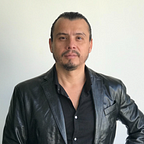Meet the Latin-American “Zuckerbergs”! Part III
This is the third part of the article Meet the Latin-American “Zuckerbergs”! About technology innovators in Latin America, which was previously published here in Latin America Technology Review.
Tatiana Birgisson, USA, Iceland, and Venezuela
About the project: Created the energy drink Mati.
“It was from my need as a student at Duke University to drink caffeine. The day I realized that I was drinking four cups a day, I decided to make a whole leaf of tea and refrigerate it for having it at hand. When my friends went to my room to study, they also started drinking tea and asked me if they could buy it. Then I realized that I had a business opportunity and signed up for a university scholarship to start the business,” she told to BBC World.
Impact: Since 2013, more than 300 thousand units have been produced.
Recognition: Birgisson won the Google Demo Day 2015 contest, an annual event that the Silicon Valley Internet giant organizes for young entrepreneurs to introduce their technology startups to investors and industry leaders.
AOL co-founder Steve Case was one of three jurors who selected Birgisson and pledged to make a $100,000 personal investment in her business.
He described Birgisson’s startup and three other competitors as “amazing companies with an incredible potential” and “the kind of companies that I’m excited to invest in.”
A word of advice: “Nowadays, a person can be innovative in Latin America in the same way she can be in the United States or in Silicon Valley. Look for the opportunities that exist around your interests, for example: Google for Entrepreneurs has a campus of innovators in Madrid and São Paulo. Look for what you love and try to be the best in your area. Being an entrepreneur is difficult, but it can be very rewarding.”
Yenny Carias, Honduras
About the project: Developed a software that translates the voice to the sign language of Honduras (LESHO).
“I had a deaf student in the first course I taught at the National Autonomous University of Honduras (UNAH). Catherine was a very intelligent girl, she could read lips, but teaching her was quite complex.”
Impact: There is no updated census of how many deaf people live in the country, but it is estimated to be more than 50,000, Carias told to BBC World.
“At these times the people who are being benefited are the deaf students of UNAH, because the system was developed for them, to help them in their studies. They are between 10 and 20 people, as it varies every year.”
Recognition: A jury of the MIT Central America awards in 2014 noted that the Carias project “reflects the true entrepreneurial spirit of this recognition through the combination of cutting edge technological innovation and significant social and quality of life improvement.”
A word of advice: . “Request support to institutions or universities venture centers. In my case, as there is no economic benefit but a social return, UNAH gave me support to develop the software. You can also seek help from an investor partner.”
Yondainer Gutiérrez, Cuba
About the project: He made the graphic design of the website of the healthcare network of Cuba, Infomed, reference for doctors and researchers in the island.
This was his undergraduate thesis, done with Yelena Bequer Crespo, at the Higher Institute of Industrial Design in Havana.
“We were looking for themes of interesting theses that could have an impact on society and we concluded that the Infomed needed to be redesigned, and that’s what we did,” he told to BBC.
With a new visual design on the Internet, designers optimized the visualization of content and access to Infomed information.
Recognition: In 2014, this work was worthy of the first prize given by the National Office of Industrial Design (ONDi) of Cuba to the best project with significant social contributions.
Although Internet access is restricted in Cuba, Gutiérrez was able to “find a way” to create websites and applications for mobile devices for users abroad. He is also one of the creators of the AlaMesa website and app, a Cuban cooking guide. This year, it was selected by Forbes magazine as one of the “Technological Revolutionaries of Cuba.”
One word of advice: “It is necessary to create business ventures that are useful, that bring some benefit in the daily life to the local people. Many projects fail because don’t have point.”
Rodrigo Teijeiro
This sample of entrepreneurs could not miss Rodrigo Teijeiro, who won the MIT Technology Review award in 2012. He founded Sonico, a Latin American social network that “surpassed Facebook in 2008 with more than 55 million users,” he told BBC World.
He currently leads Recarga.com, a mobile payment platform that reaches “500 million people” in Latin America with prepaid cellphones. For him, being an entrepreneur “is an emotional roller coaster.”
Read the first part of the article here!
Source: Globo/G1
Billy D. Aldea-Martinez, heads up Latin America and Brazil for Piano, the world’s leader SaaS Platform that allows media companies to launch Direct Monetization models, such as metering and paywall solutions for digital content and user data analysis.
Billy is also a Digital Monetization Strategy consultant and exclusively works with Latin America’s largest media groups, such as Editora Abril (Brazil), Grupo Globo (Brazil) as well as Grupo Copesa (Chile).
He also serves as Board Advisor & Angel Investor for adtech & martech startups such as Start-up Chile, Start-up Peru, Parallel18 (PR) Admetricks and Starter Daily.
For more Latin American Technology articles, click here.
Follow Billy D. Aldea-Martinez on Twitter @aldeamartinez
